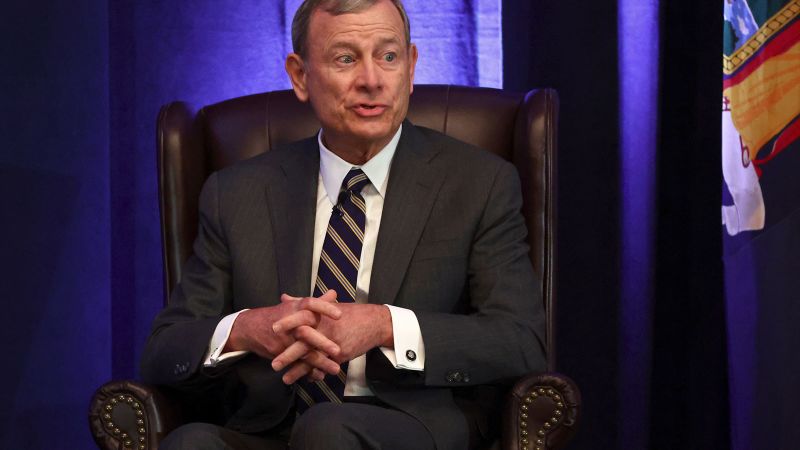Chief Justice John Roberts recently articulated the vital principle of judicial independence during a public address delivered on Wednesday. He emphasized that the judiciary functions as a co-equal branch of government, essential to the political framework of the United States. In his remarks, he underscored the judiciary’s unique role, which not only includes adjudicating cases but also involves checking the powers and actions of both Congress and the presidency. This assertion reflects a cornerstone of democratic governance, where the separation of powers is designed to prevent any one branch of government from becoming too powerful.
In a notable declaration made at an event in Buffalo, New York, Roberts remarked, “The judiciary is a coequal branch of government, separate from the others with the authority to interpret the Constitution as law, and strike down, obviously, acts of Congress or acts of the president.” This statement serves as a reminder of the judiciary’s responsibility to serve as an impartial arbiter of constitutional interpretation. The chief justice’s emphasis on the judiciary’s power to wipe out laws enacted by Congress or executive orders underscores the judiciary’s pivotal role in maintaining the rule of law.
Roberts elaborated further on the judiciary’s responsibilities by highlighting its duty to ensure that neither Congress nor the executive branch exceeds its constitutional boundaries. He mentioned that decisions stemming from the courts are crucial, stating, “decide cases but, in the course of that, check the excesses of Congress or the executive.” This assertion of judicial oversight is vital for maintaining a balance of power, which is integral to the democratic system.
The chief justice pointed out that this judicial oversight requires a significant degree of independence from external influences. Roberts firmly stated, “does require a degree of independence,” underscoring how essential it is for judges to operate without political pressure or interference. His remarks come at a time when discussions regarding the relationship between the judicial and executive branches have come to the fore, mainly due to the ongoing tensions that have characterized the political landscape since President Donald Trump assumed office in January.
While Roberts refrained from mentioning Trump directly, the context of his speech undeniably spoke to the climate of discord between the presidency and the judiciary. Trump and his allies have voiced calls for impeaching judges who deliver rulings contrary to the administration’s agenda. In response to this growing concern, Roberts reiterated a vital principle governing the relationship between the executive and judicial realms, clarifying, “Impeachment is not how you register disagreement with decisions.” This statement serves as both a reminder and a warning about the ramifications of undermining judicial independence.
Roberts previously expressed similar sentiments in March, when he made a rare statement addressing the issue of potential judicial impeachment directly. He stated, “For more than two centuries, it has been established that impeachment is not an appropriate response to disagreement concerning a judicial decision… The normal appellate review process exists for that purpose.” In doing so, he affirmed the proper channels through which grievances regarding judicial outcomes should be pursued, essentially advocating for measured and lawful discourse over emotional and reactionary responses.
In subsequent public comments, President Trump has demonstrated a degree of caution, suggesting intentions to honor future rulings from the Supreme Court. However, there remains an ongoing concern regarding how the administration interprets legal ambiguities. For example, in high-profile cases like that of a Maryland man mistakenly deported to El Salvador, the administration’s responses have often appeared to be influenced by its own interests, illustrating the complexities that arise when the lines between governmental branches blur.
In sum, Chief Justice John Roberts’ remarks highlight the fundamental importance of judicial independence and the need for the judiciary to maintain its role as a counterbalance to legislative and executive powers. Roberts’ statements resonate deeply within the current political climate, where calls for judicial impeachment and critiques of judicial rulings pose significant threats to the principles underlying American democracy. His advocacy for maintaining the integrity of judicial processes and the rule of law is essential in safeguarding the tenets of democracy in a contentious political environment.



